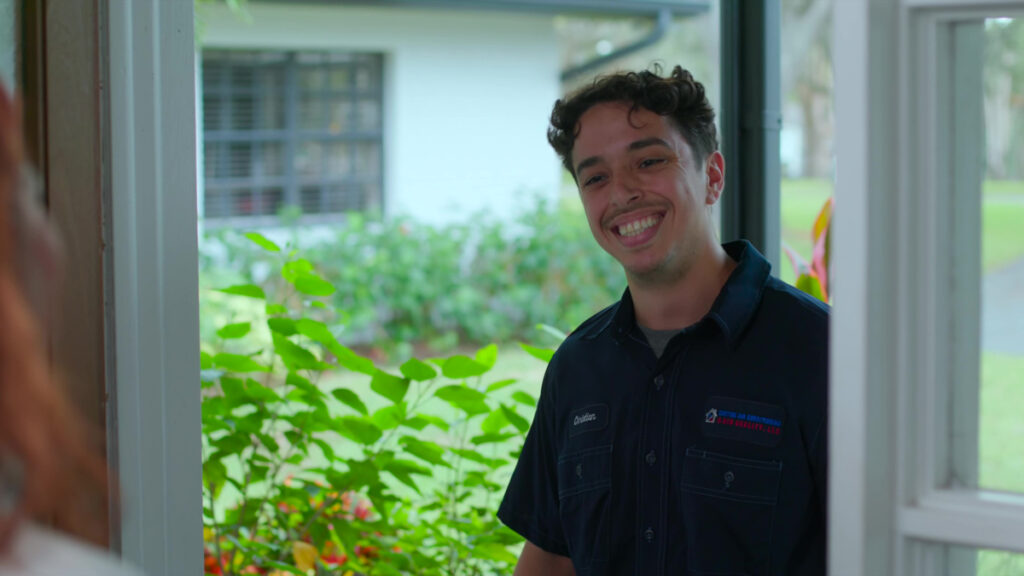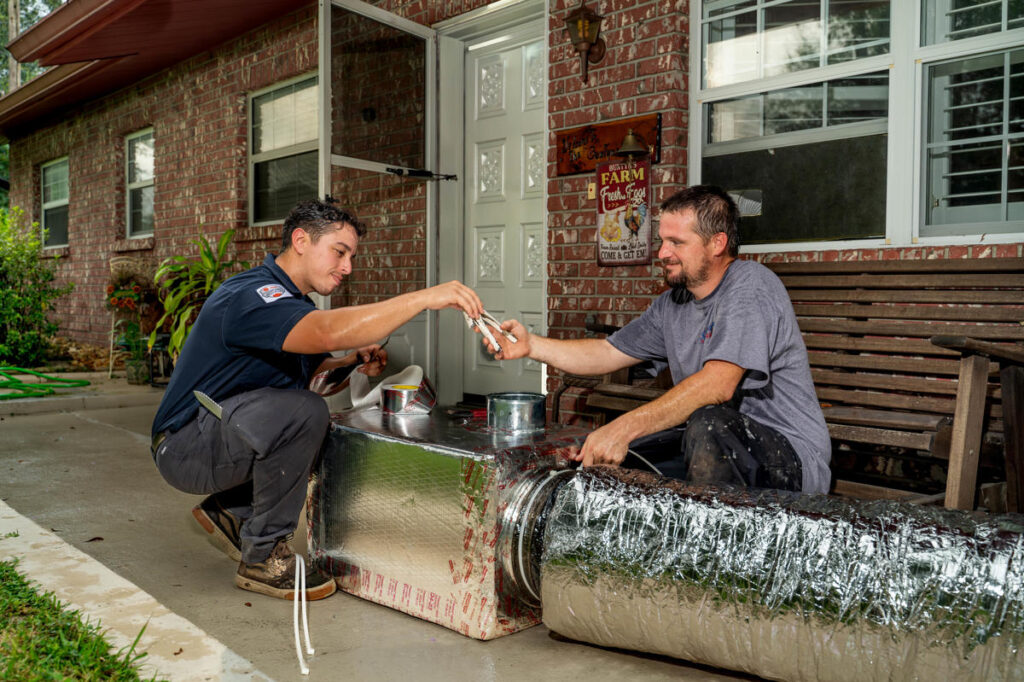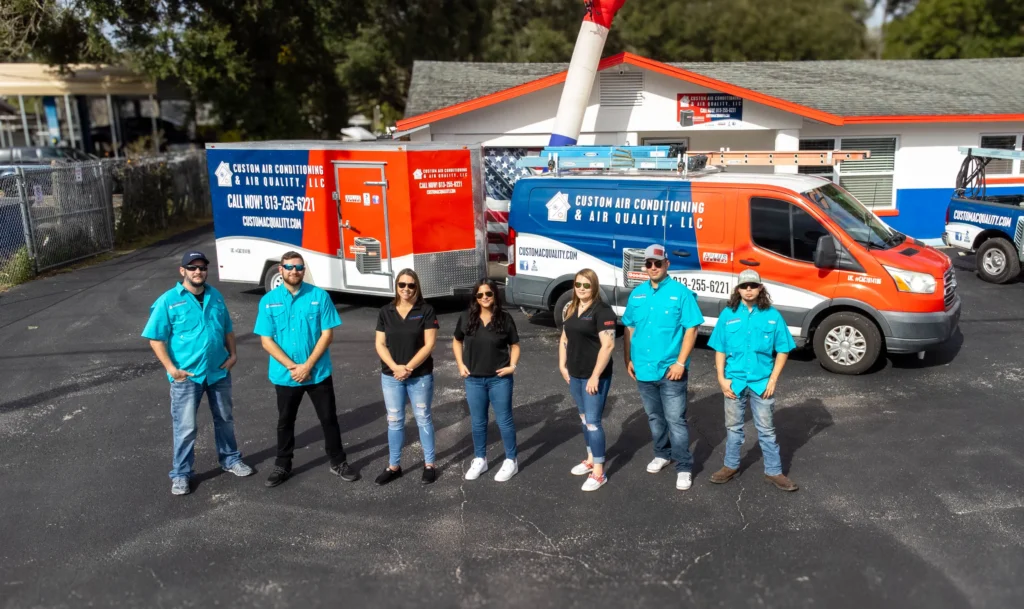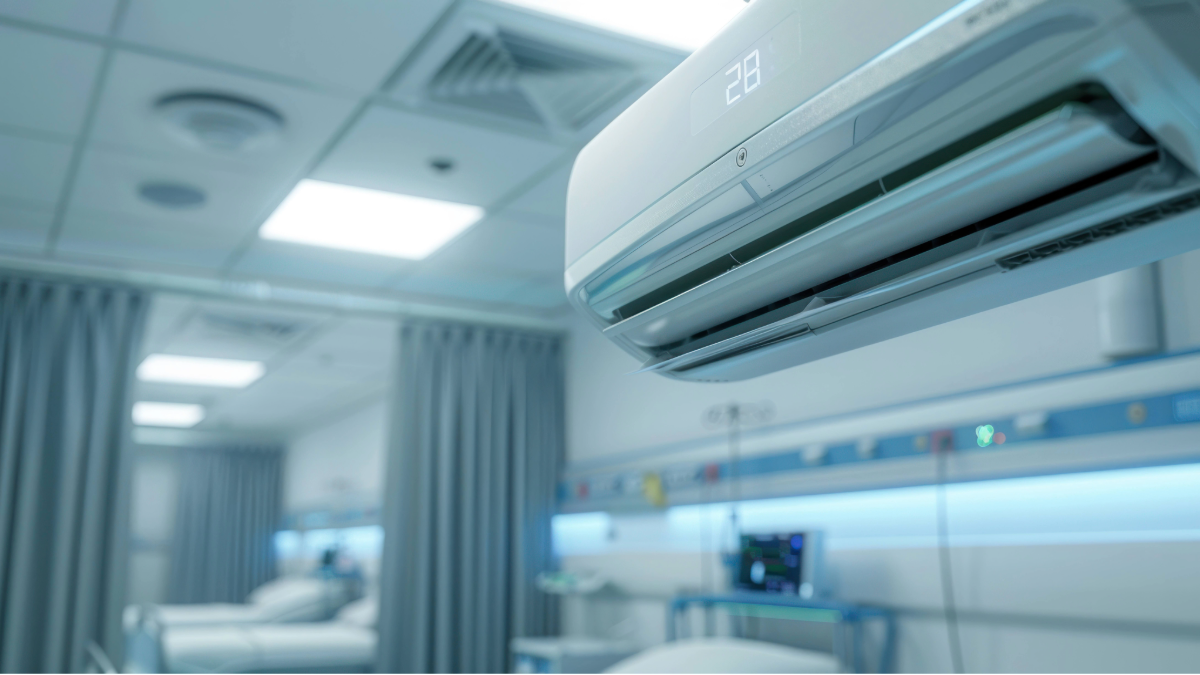The HVAC industry is growing rapidly, creating strong demand for skilled technicians in both residential and commercial settings. As heating and cooling systems become more advanced and energy-efficient, HVAC jobs are evolving to require technical expertise and hands-on training. With nearly every home, office, and industrial facility relying on climate control, jobs in HVAC offer long-term stability and diverse career opportunities.
For those looking to enter the field, HVAC technician training is essential. Whether through trade schools, apprenticeships, or on-the-job experience, proper training ensures technicians understand system installation, repair, and maintenance, as well as the latest industry technologies.
A career in HVAC provides more than just a paycheck, it offers job security, career growth, and the ability to work in a dynamic, hands-on environment. Technicians can specialize in residential, commercial, or industrial HVAC systems, advance into management or business ownership, or even focus on emerging technologies like smart HVAC systems and energy-efficient solutions.
In this blog post, we’ll explore the steps to becoming an HVAC technician, the importance of hands-on training, and the challenges and rewards of working in the industry. Whether you’re just starting or looking to advance your career, this guide will help you navigate the path to success in the HVAC field.
Table of Contents

Steps to Becoming an HVAC Technician
Starting a career in HVAC requires the right mix of education, hands-on training, and certifications. Whether you’re entering the field from high school or transitioning from another career, following a structured path ensures you develop the skills needed to secure HVAC employment opportunities and advance in the industry.
Education & Certifications
1. High School Preparation
A strong foundation in math, physics, and technical education can be beneficial for aspiring HVAC technicians.
Courses in algebra, geometry, and physics help with understanding thermodynamics, electrical circuits, and mechanical systems, all of which are critical to HVAC work. If available, taking shop classes or vocational training programs in high school can also provide a head start.
2. HVAC Trade Schools & Technical Programs
Enrolling in an HVAC trade school or technical training program provides a structured learning environment to gain foundational knowledge in heating, ventilation, air conditioning, and refrigeration. These programs typically cover:
- HVAC system installation and repair
- Electrical and mechanical components of heating and cooling systems
- Refrigerant handling and safety procedures
- Airflow and ductwork design
Many programs offer hands-on lab training, allowing students to work with real HVAC equipment before entering the field. Completing a trade school or technical program can increase job prospects and prepare candidates for certification exams.
3. Essential HVAC Certifications
Certifications are a critical part of becoming an HVAC technician, ensuring compliance with industry regulations and improving career advancement opportunities. Some key certifications include:
- EPA Section 608 Certification – Required for any HVAC technician handling refrigerants, this certification is mandatory by federal law and comes in different types depending on the system being serviced.
- NATE (North American Technician Excellence) Certification – While not required, this respected industry certification can enhance job prospects and demonstrate expertise in HVAC service, installation, and troubleshooting.
- State or Local Licensing Requirements – Some states and municipalities require additional licensing for HVAC jobs, such as contractor licenses, journeyman certifications, or city-specific permits.
Obtaining these certifications ensures that technicians can legally work with refrigerants, install HVAC systems, and operate in compliance with safety standards.

The Importance of Apprenticeships & Hands-On Training
While classroom learning is essential, hands-on experience is what truly prepares HVAC technicians for real-world challenges. Apprenticeships and on-the-job training provide practical knowledge that can’t be learned from textbooks alone.
Why On-the-Job Experience is Crucial
Most employers prefer hiring HVAC technicians with real-world experience. Working under the supervision of experienced professionals allows apprentices to:
- Develop diagnostic and troubleshooting skills
- Learn how to install, maintain, and repair HVAC systems
- Gain customer service and communication experience
- Understand safety protocols and industry regulations
The Benefits of Learning Through Apprenticeships
Apprenticeships combine paid work with hands-on learning, giving new technicians the chance to earn while they learn. Some benefits include:
- Exposure to various HVAC systems and technologies
- Real-time problem-solving experience
- The ability to network with industry professionals
- Faster career advancement by gaining practical expertise
Where to Find Apprenticeships or Entry-Level Heating and Air Jobs
Finding an HVAC apprenticeship or entry-level job can be done through:
- Local HVAC companies and contractors – Many businesses offer apprenticeship programs to train new technicians.
- Trade schools and technical colleges – Some programs have partnerships with employers to help students transition into the workforce.
- Online Job Boards – Websites such as Indeed, ZipRecruiter, and HVAC industry job portals list entry-level heating and air jobs.
By combining education, certifications, and hands-on experience, aspiring HVAC technicians can successfully enter the field and advance their careers over time.

Common Challenges & Rewards of Working in HVAC
A career in HVAC offers great job security, high earning potential, and opportunities for advancement, but it also comes with unique challenges. Understanding both the difficulties and benefits of the profession can help aspiring technicians prepare for a successful and rewarding career.
Challenges:
Physical Demands
HVAC work is physically intensive, requiring technicians to lift heavy equipment, work in tight crawl spaces, and handle physically demanding tasks.
In extreme climates, technicians often work in hot attics during the summer or freezing outdoor conditions in the winter, making physical endurance a key part of the job.
Irregular Hours & Emergency Calls
Many heating and air jobs require on-call availability, especially during peak seasons when air conditioning and heating systems are most in demand.
Emergency service calls at night, on weekends, or during extreme weather conditions can lead to long, unpredictable hours, especially for technicians working in residential HVAC repair.
Keeping Up with Technological Advancements
HVAC systems are evolving, with energy-efficient technologies, smart home integrations, and automation becoming more common. Technicians must continuously update their skills to stay current with:
- Smart thermostats & home automation systems
- High-efficiency heating and cooling units
- New refrigerant regulations and eco-friendly HVAC solutions
This means ongoing education and certification renewals are necessary for long-term success in HVAC jobs.
Rewards:
Job Stability & Growing Demand
HVAC employment opportunities continue to grow as homes, businesses, and industrial facilities require heating, cooling, and ventilation systems year-round. As the industry expands, skilled HVAC technicians will always be in high demand, ensuring long-term job security.
High Earning Potential
With the right certifications, experience, and specializations, HVAC technicians can earn competitive salaries. Many experienced technicians, specialists, and business owners make well above the average income, especially in high-demand areas or commercial HVAC work.
Career Growth & Specialization Opportunities
HVAC professionals can advance their careers in multiple ways, including:
- Becoming a lead technician, supervisor, or HVAC manager
- Specializing in energy-efficient HVAC systems, refrigeration, or smart home technology
- Earning advanced certifications to work in commercial or industrial HVAC
- Eventually starting their own HVAC business
Variety of Work Environments
Unlike desk jobs, HVAC careers offer a dynamic work environment. Technicians may work in homes, commercial buildings, factories, hospitals, or even large-scale industrial settings, making every day different. This variety keeps the job engaging and challenging, especially for those who enjoy problem-solving and working with their hands.
A career in HVAC requires hard work, continuous learning, and adaptability, but it also provides strong job security, financial growth, and the ability to build a long-term, fulfilling career.

Advancing in the HVAC Industry
A career in HVAC offers plenty of opportunities for growth and specialization. Whether you want to move into higher-paying positions, specialize in cutting-edge technology, or start your own HVAC business, continuous education and skill development are essential. Here’s how technicians can take their careers to the next level.
Upskilling & Continuing Education
The HVAC industry is constantly evolving, with new energy-efficient systems, automation, and smart HVAC technology becoming more common. Staying ahead of industry trends through ongoing training and certification programs can increase job opportunities, earning potential, and career stability.
- Advanced HVAC Certifications – Gaining specialized credentials, such as NATE Senior Level Technician or LEED certification, can improve job prospects and salary potential.
- Smart HVAC & Automation Training – Learning about smart thermostats, IoT-connected HVAC systems, and building automation helps technicians stay competitive in a rapidly advancing field.
- Green HVAC Technology – Training in energy-efficient HVAC systems, heat pumps, and eco-friendly refrigerants prepares technicians for the industry’s shift toward sustainability.
Many trade schools, HVAC associations, and manufacturers offer continuing education courses, making it easy for technicians to expand their skill set while still working.
Becoming a Master HVAC Technician
For those looking to maximize their expertise and earning potential, becoming a Master HVAC Technician is the next step. This senior-level certification recognizes experienced technicians who have gained extensive knowledge in HVAC installation, troubleshooting, and system design.
The steps to becoming a Master HVAC Technician typically include:
- Gaining years of hands-on experience as a licensed technician.
- Earning advanced certifications, such as NATE Senior Level Certification or state-specific Master Technician licensing.
- Demonstrating expertise in advanced HVAC technologies, including commercial HVAC systems, industrial cooling, and automation.
- Completing leadership or management training to oversee projects, train apprentices, or move into supervisory roles.
Master technicians often earn higher salaries, gain access to leadership positions, and have more flexibility in choosing their career paths.
Starting Your Own HVAC Business
For those with strong technical skills, business knowledge, and an entrepreneurial mindset, launching an HVAC company can be a lucrative long-term career move. Many technicians who gain years of experience in the field eventually transition into business ownership, providing services like installations, repairs, and HVAC system maintenance for residential and commercial clients.
To start an HVAC business, technicians typically need:
- A state HVAC contractor’s license, which requires meeting specific experience and exam requirements.
- Business management knowledge, including marketing, financial planning, and customer service skills.
- The right equipment and team, whether working solo or hiring additional technicians.
- A strong client base, often built through networking, referrals, and reputation.
Owning an HVAC business allows for greater financial freedom, flexible scheduling, and the ability to scale services, making it a highly rewarding career goal for skilled technicians.

HVAC Career Growth with Custom Air Conditioning & Air Quality
At Custom Air Conditioning & Air Quality, we recognize that the HVAC industry is full of opportunities for growth, whether you’re just starting out or looking to advance your career. We are always looking for skilled, motivated technicians to join our team and take advantage of exciting HVAC employment opportunities.
If you’re looking for jobs in HVAC, whether as an apprentice, certified technician, or experienced professional, we encourage you to apply.
Our company supports technicians who want to grow their expertise, earn advanced certifications, and even work toward starting their own HVAC business.
At Custom Air Conditioning & Air Quality, we believe in investing in our employees to help them build successful careers in HVAC. Ready to take the next step? Visit our jobs page to apply today!






